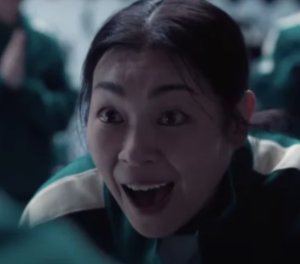A Soulful Meditation On Love, Guilt, and Afterlife
Heavenly Ever After enters the scene with an oddball premise: the recently deceased navigating the bureaucracy of the afterlife, tangled relationships, karmic payback, and even talking pets. On paper, it promises quirky charm and philosophical depth. In execution, however, it spends much of its runtime stumbling through tonal confusion, sluggish pacing, and scattered storytelling before finally finding its footing far too late.
The show begins on a shaky note, taking too long to even reach its premise. While themes of redemption and love are present from the start, the show struggles to settle on a tone. One moment it’s playing out as a tender human drama, the next it's filled with surreal pet politics or slapstick comedy in the heavenly realm. The result is disorienting rather than dynamic.
As the story progresses, the emotional core slowly takes shape. Characters like Hae-suk and Nak-jun are given time to breathe, and actors Kim Hye-ja and Son Suk-ku inject warmth and vulnerability into their otherwise clumsily written roles. Still, subplots often feel disconnected or half-formed, especially the reincarnation arcs involving pets or the vague romantic entanglements that appear and disappear with little warning. The show has big ideas but doesn’t quite know how to thread them into a compelling throughline.
The world-building, especially of Heaven and Hell, is visually inventive in places but undercut by budgetary limitations and repetitive exposition. Even the show’s more daring creative decisions, like the stylized punishments of Hell or Som-I’s identity crisis, are often presented twice or bloated with filler scenes that undercut their impact.
It’s not until the final stretch that the narrative gains real momentum. Connections between characters begin to reveal deeper karmic ties, past lives are reframed with emotional weight, and the mystery of Som-I finally takes center stage. Her reveal is the series’ most poignant twist. It’s clever and thematically rich. Unfortunately, by this point, the show has already damaged its emotional pacing, and the revelation doesn’t fully land due to earlier inconsistencies.
At its best, Heavenly Ever After is a soulful meditation on love, guilt, and the afterlife. At its worst, it’s a messy patchwork of half-developed ideas and filler content that squanders its unique premise. The show wants to be heartfelt, whimsical, profound, and funny, but rarely achieves more than one at a time.
The show begins on a shaky note, taking too long to even reach its premise. While themes of redemption and love are present from the start, the show struggles to settle on a tone. One moment it’s playing out as a tender human drama, the next it's filled with surreal pet politics or slapstick comedy in the heavenly realm. The result is disorienting rather than dynamic.
As the story progresses, the emotional core slowly takes shape. Characters like Hae-suk and Nak-jun are given time to breathe, and actors Kim Hye-ja and Son Suk-ku inject warmth and vulnerability into their otherwise clumsily written roles. Still, subplots often feel disconnected or half-formed, especially the reincarnation arcs involving pets or the vague romantic entanglements that appear and disappear with little warning. The show has big ideas but doesn’t quite know how to thread them into a compelling throughline.
The world-building, especially of Heaven and Hell, is visually inventive in places but undercut by budgetary limitations and repetitive exposition. Even the show’s more daring creative decisions, like the stylized punishments of Hell or Som-I’s identity crisis, are often presented twice or bloated with filler scenes that undercut their impact.
It’s not until the final stretch that the narrative gains real momentum. Connections between characters begin to reveal deeper karmic ties, past lives are reframed with emotional weight, and the mystery of Som-I finally takes center stage. Her reveal is the series’ most poignant twist. It’s clever and thematically rich. Unfortunately, by this point, the show has already damaged its emotional pacing, and the revelation doesn’t fully land due to earlier inconsistencies.
At its best, Heavenly Ever After is a soulful meditation on love, guilt, and the afterlife. At its worst, it’s a messy patchwork of half-developed ideas and filler content that squanders its unique premise. The show wants to be heartfelt, whimsical, profound, and funny, but rarely achieves more than one at a time.
Was this review helpful to you?


 1
1 3
3



















